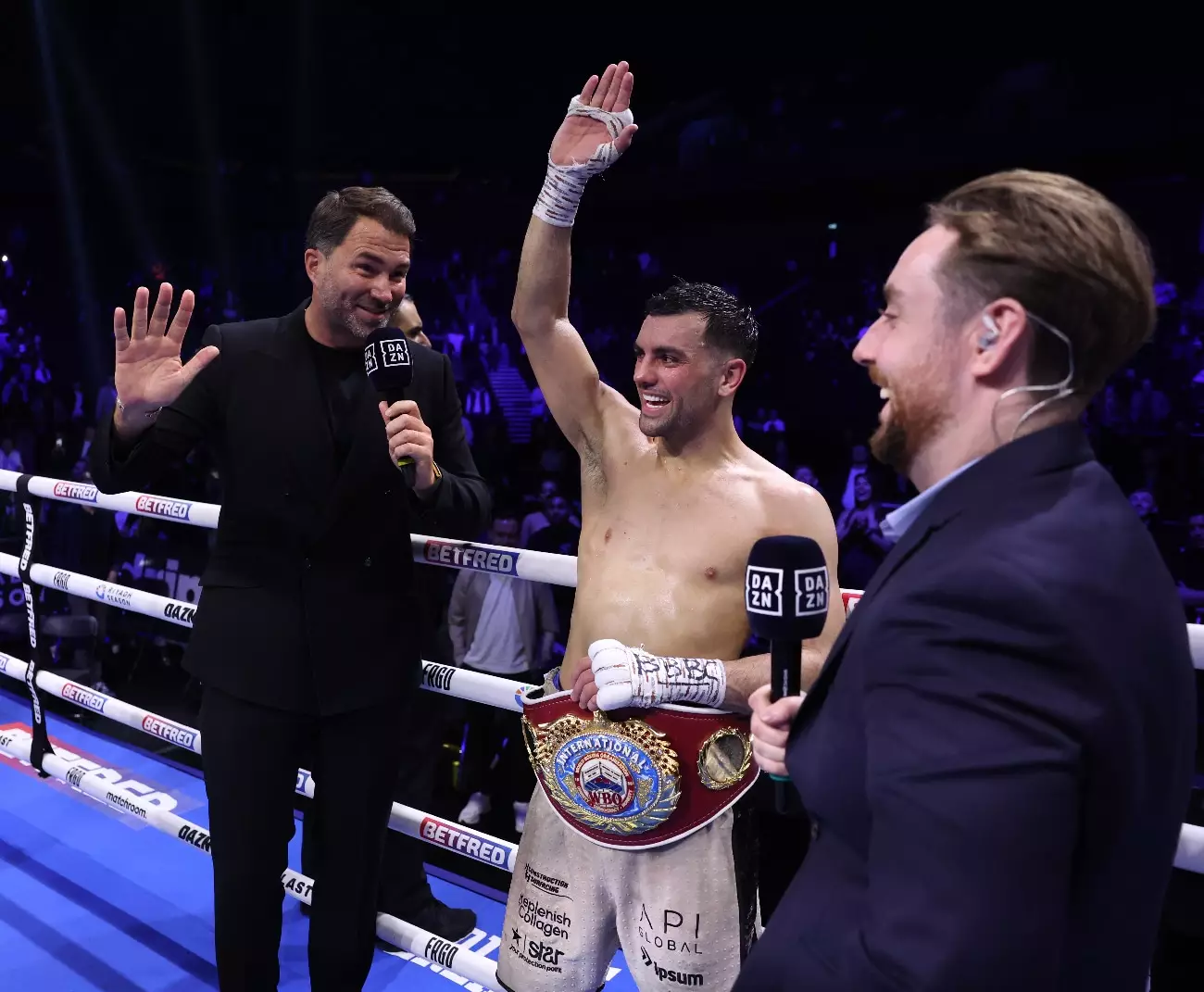Jack Catterall’s decisive win over Regis Prograis marked a significant moment in the light welterweight division, prompting promoter Eddie Hearn to express his satisfaction with the result. The unanimous decision victory, characterized not just by the scorecards but rather by two pivotal knockdowns in the ninth round, put a spotlight on Catterall’s potential as he eyes a title bout against the winner of the upcoming Liam Paro vs. Richardson Hitchins fight for the IBF light welterweight title. However, while the win may seem like a stepping stone, it raises questions about Catterall’s prospects against the elite names in the division and his overall marketability.
Catterall, boasting a record of 30 wins, one loss, with 13 knockouts, showcased resilience against Prograis, a former champion known for his knockout prowess. Despite an initial rocky start where Prograis dropped Catterall in the fifth round, the latter exhibited tactical adaptability, turning the tide in his favor during the later rounds. His victory in Manchester served not only as a statement to his abilities but also showed that fighters can be susceptible to pressure; Prograis appeared to lose motivation and direction following the knockdowns. The scorecards, stamped at 117-108, 116-109, and 116-109, didn’t lie; Catterall’s comeback was comprehensive.
The significance of the knockdowns cannot be overstated. They shaped the emotional and psychological momentum of the fight, showcasing Catterall’s punching power that had previously been underestimated. Hearn himself noted that the knockdowns were crucial to Catterall’s trajectory within the division. With Prograis arguably approaching the twilight of his career, it raises the question: has Catterall legitimately broken into the upper echelon or merely succeeded against a waning champion?
While Catterall’s performance garnered praise from his promoter, it also highlighted a critical point: in modern boxing, style often trumps substance. Eddie Hearn hinted that for Catterall to make it big in the U.S. market, he might need to tweak his fighting style. His defensive-oriented approach, comparable to that of Shakur Stevenson, has shaped perceptions, making him less interesting to a casual American audience. The need for a more expansive fighting style is evident—audiences gravitate towards fighters who not only win but do so in a manner that captivates.
Marketability and Future Prospects
Despite Catterall’s technical prowess and the merits of his latest victory, his marketability in the U.S. remains a point of contention. Even though Hearn exuded confidence in Catterall’s ability to compete with the likes of Ryan Garcia, Teofimo Lopez, and Devin Haney, many view these potential matchups with skepticism. Catterall’s less flashy style stands in stark contrast to these boxers, who often draw crowds due to their explosive knockouts and charismatic personas.
To draw in the big money fights, Catterall will need more than just defensive skill—he requires a full-fledged promotional push akin to what Hearn has managed with other fighters. However, with the current dynamics in the boxing ecosystem and with high-profile names being less inclined to face fighters perceived as less marketable, the path becomes increasingly complicated.
Additionally, financial considerations loom large in any potential matchup involving Catterall. The economics of boxing often dictate fights; significant purses would likely be necessary to entice the likes of Garcia or Lopez and successfully put Catterall on a more prominent platform. With promoters like Turki Alalshikh focusing on more intriguing bouts, securing this kind of financial backing for Catterall could prove challenging.
As Catterall stands now, the proposed fight against the winner of the Paro-Hitchins matchup could be pivotal for defining his career. A title shot would not only solidify his standing in the light welterweight division but could also serve as a critical moment in reshaping his narrative in the sport. If he can secure the title, the leverage it brings may improve his chances of landing marquee fights against more recognized and marketable opponents.
Catterall faces a critical juncture; a blend of excellent strategy, in-ring effectiveness, and savvy promotional efforts will dictate whether he transitions from a talented fighter to a recognized champion. The post-fight sentiments expressed by Hearn indicate hope, but it’s crucial for Catterall to seize this opportunity, adapt where necessary, and prove that he deserves a rightful place among the elite. The boxing world will be watching closely as this saga unfolds, and the stakes have never been higher.

